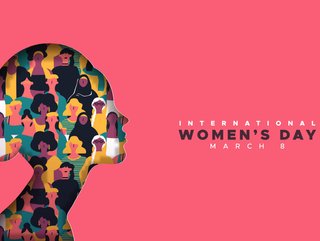IWD 2024: Encouraging Women into Tech Careers is Essential

Elevating and advancing gender equality within the technology sector has never been more important.
With companies and jobs within the industry lacking female representation and female leadership, plenty are campaigning for better access and opportunities for young women to get involved in a technology career.
Within the world of AI, however, biases and discrimination can stem from the technology itself. In particular, algorithmic bias, which Dr Joy Buolamwini describes as “coded gaze”, refers to the discriminatory practices and exclusionary practices within machine learning.
Technology business leaders would benefit from recognising the importance of tackling inequalities associated with AI.
Confronting AI discrimination
With AI having integrated itself into the everyday lives of millions around the world, it has never been more important to confront the biases and unfairness that these systems hold the potential to perpetuate.
These biases have already been highlighted within the academic world, with students having already been discriminated against by AI algorithms - in particular, if English is not their first language.
According to an International Women’s Day blog post, there are multiple examples of AI algorithms reinforcing gender stereotypes, which could include disproportionally rejecting female applicants from particular jobs.
Cristina Gonzalez Pitarch, Managing Director EMEA of Google Cloud Security, says: “In the UK, women make up only 17% of the total cyber sector workforce, and a lack of representation can make it more difficult for women to envision themselves in these roles.
“This starts at a young age, with fewer girls encouraged to study computer science or IT subjects. However, cybersecurity doesn’t only require technical profiles.”
She highlights the cybersecurity sector in particular, adding: “We need to encourage more women from different backgrounds to explore and pursue careers in cybersecurity, because their unique perspectives can significantly contribute to building a more secure and resilient future for everyone.”
According to Women in Tech, only 22% of global AI employees are female, leaving a gender and skills gap which continues to be a common occurrence within technology sectors.
Currently, AI is trained and tested by using existing data. As a result, its ability to learn often reflects bias that already exists, as datasets provided by the humans building the AI are not wide enough. This can lead to greater discrimination based on personal data, including race, gender, sexuality and more.
AI can currently only perform as well as the humans that create it.
Inspiring inclusion: The next generation of women in tech
This year for International Women's Day, the message is ‘Inspire Inclusion’ - highlighting that businesses must create greater opportunities for access and use their expertise to better support women at work. In doing so, women will be able to develop existing skills and progress to more leadership roles.
Currently, less than one-third of global leadership positions are by women, says Admas Kanyagia, VP, Social Impact at DigitalOcean, citing that in the UK alone, women represent just 23% at Vice President level.
She tells AI Magazine: “In the UK alone, only one in three entrepreneurs are women, demonstrating an issue that exists surrounding female entrepreneurship. Largely, this centres on women having reduced access to capital, limited networking opportunities, and less mentors available to them.
“To tackle the gap that exists, we need to create communities of experienced like-minded individuals that can encourage mentorship and access to networks and funding for women. Beyond International Women's Day, every day presents an opportunity to empower female entrepreneurs in the tech industry.”
Within the AI sector especially, there are myriad benefits to having women in essential positions within a company. Deloitte stated in its Women in AI report that having diversity across the AI sector will ensure that a wide range of perspectives and lived experiences are incorporated into the design and implementation of an AI system.
In fact, the company reported that 71% of companies that promote and elevate diverse groups within their organisation will benefit as a result. Likewise, 66% of its study respondents highlighted that having more women in leadership and role model positions directly benefits an organisation’s employees.
Whilst the data advocates for greater inclusion of women, Head of AI at Intellias, Hana Rizvić, explains why equality initiatives must start earlier.
“We must inspire inclusion from a young age. Young girls need access to great teachers and education with extra support from mentors, so they can believe in themselves to develop their passions into a profession, with no boundaries,” she says.
“In tech and science-related industries, there needs to be greater opportunities and support for women to excel. This includes increased representation in leadership and technical roles, closing the gender pay gap, fostering inclusive work environments with mentorship and flexibility, encouraging girls and women to pursue STEM education and careers, and recognising and valuing diverse perspectives.
She adds: “By promoting these measures, we can create a more equitable and inclusive landscape, harnessing the full potential of women's talents for innovation and progress.”
************
Make sure you check out the latest edition of AI Magazine and also sign up to our global conference series - Tech & AI LIVE 2024
************
AI Magazine is a BizClik brand






